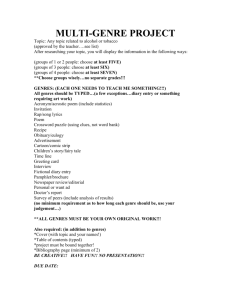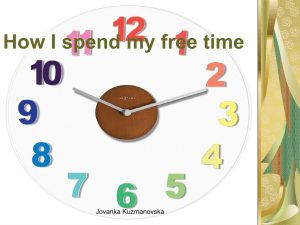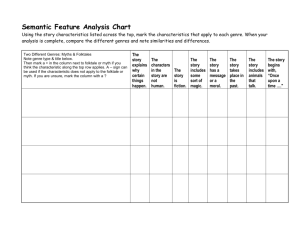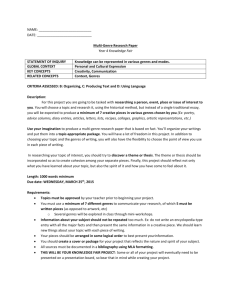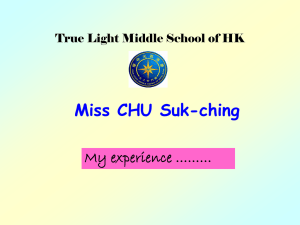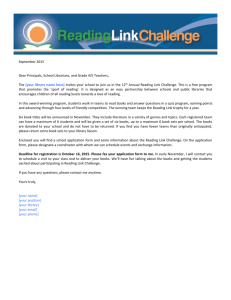L6_U2_ELA12 - Oakland Schools Moodle
advertisement
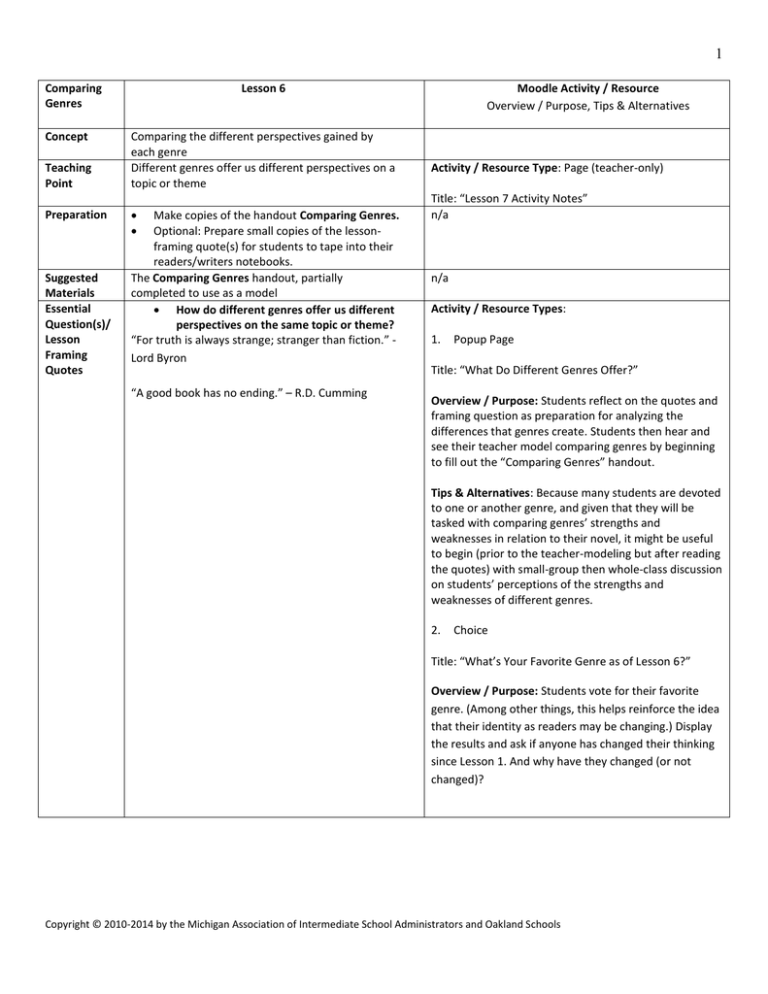
1 Comparing Genres Concept Teaching Point Preparation Suggested Materials Essential Question(s)/ Lesson Framing Quotes Lesson 6 Comparing the different perspectives gained by each genre Different genres offer us different perspectives on a topic or theme Make copies of the handout Comparing Genres. Optional: Prepare small copies of the lessonframing quote(s) for students to tape into their readers/writers notebooks. The Comparing Genres handout, partially completed to use as a model How do different genres offer us different perspectives on the same topic or theme? “For truth is always strange; stranger than fiction.” Lord Byron “A good book has no ending.” – R.D. Cumming Moodle Activity / Resource Overview / Purpose, Tips & Alternatives Activity / Resource Type: Page (teacher-only) Title: “Lesson 7 Activity Notes” n/a n/a Activity / Resource Types: 1. Popup Page Title: “What Do Different Genres Offer?” Overview / Purpose: Students reflect on the quotes and framing question as preparation for analyzing the differences that genres create. Students then hear and see their teacher model comparing genres by beginning to fill out the “Comparing Genres” handout. Tips & Alternatives: Because many students are devoted to one or another genre, and given that they will be tasked with comparing genres’ strengths and weaknesses in relation to their novel, it might be useful to begin (prior to the teacher-modeling but after reading the quotes) with small-group then whole-class discussion on students’ perceptions of the strengths and weaknesses of different genres. 2. Choice Title: “What’s Your Favorite Genre as of Lesson 6?” Overview / Purpose: Students vote for their favorite genre. (Among other things, this helps reinforce the idea that their identity as readers may be changing.) Display the results and ask if anyone has changed their thinking since Lesson 1. And why have they changed (or not changed)? Copyright © 2010-2014 by the Michigan Association of Intermediate School Administrators and Oakland Schools 2 Comparing Genres Teaching Point Lesson 6 Different genres offer us different perspectives on a topic or theme. Moodle Activity / Resource Overview / Purpose, Tips & Alternatives Activity / Resource Type: Page Title: “Compare Genres” Active Engagement Teacher Model and Think-aloud: Model how you would begin to fill out this handout, revealing what differences you found between genres as you learned about your topic. Active Engagement: Students work with a partner to fill out one column on their chart. Teacher circulates and assists as needed. Overview / Purpose: Students see how you would fill out the “Comparing Genres” handout. Then they work with a partner to find a nonfiction resource and begin to fill out a column of the “Comparing Genres” handout. & Independent Practice Independent Practice: Students complete the rest of their chart individually. Teacher circulates. Tips & Alternatives: As students work together to fill out one column, circulate and assist students who are struggling. Also find examples to hold up as positive models for the whole class. Continue circulating as students work independently, assisting students who are struggling and asking probing questions of those who may understand the task but may not be challenging themselves sufficiently. Share Students volunteer or are nominated to share some of their findings with the class about learning about a theme, topic, or idea through reading multiple genres. Activity / Resource Type: Page Title: “Share Your Genre Findings” Overview / Purpose: First in pairs, then small groups, and finally in a whole-class discussion, students share their findings on how genre can influence learning about a theme, topic, or idea. Tips & Alternatives: Styled as face-to-face discussion, this could also have an online component, either to be completed ahead of time (with students posting their ideas before being able to see others’ ideas—a “Q&A”style forum / discussion in Moodle), or to be completed in-class after the partner-level discussions. If students have made comments in an online discussion, a fruitful way to use their discussion posts in-class is to ask students to review the discussion and find interesting, provocative, or question-generating ideas and bring them to the group’s attention in live discussion. 2 Copyright © 2010-2014 by the Michigan Association of Intermediate School Administrators and Oakland Schools 3 Comparing Genres Assessment/ Extension Independent Practice & Extension Lesson 6 Students may need additional time to complete the chart as homework. The charts could be used as an exit slip for teachers to examine and use them as the basis to adjust instruction or reteach before students move on to the summative assessment. Independent Practice: Students read independently for the rest of the class period. They continue to track progress on their Reading Log and fill out their Collecting Text Bookmarks. Extension: Students read at home for 30 minutes and complete the Collecting Text Bookmarks. Students should have repeated opportunities to read and discuss their novels over a span of several days. Moodle Activity / Resource Overview / Purpose, Tips & Alternatives Activity / Resource Type: Assignment Title: “Submit Your Genre Comparison Work” Tips & Alternatives: This 20-point Moodle Assignment assumes students will upload / attach their filled-in “Comparing Genres” handout. Alternatives may be useful here, especially if many / most students will handwrite on the handout. In that case, you may want to have students hand in the paper or do partner-check / check-off grading. Activity / Resource Type: Page Title: “Read Your Novel *and* Related Nonfiction, Conference With Your Teacher” Overview / Purpose: Devote substantial class time, and out-of-class time, to students’ reading to emphasize its importance in building fluency, volume, vocabulary, and comprehension, plus a love of reading Tips & Alternatives: Throughout this unit, as students read, the teacher circulates around the room and confers with students about their reading lives, using the “Questions for Conferring” handout as a guide. The first time they confer, teacher and student should discuss student reading goals and identities, and work to help support them in attaining those goals in the unit. By the second week, teachers should meet with students again in order to see if they have met those goals. Conferences are not intended to be graded observations. They are brief opportunities for students to name and provide feedback to the teacher about what they are thinking and using and what strategies, habits, or processes they are using to read the text. They are also intended to provide a moment for the teacher to guide the student. 3 Copyright © 2010-2014 by the Michigan Association of Intermediate School Administrators and Oakland Schools
